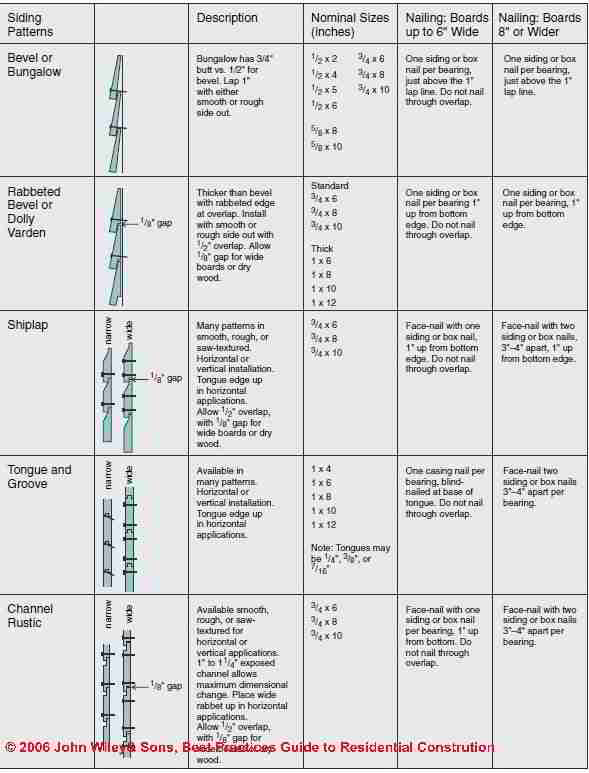Bevel siding should be face nailed to studs with 1 1 4 inch penetration into solid wood using one nail per piece spaced at a maximum of 24 inches on center.
Cedar lap siding installation blind nailing.
Maximum nail spacing is 16 in.
Ensure joints meet on studs blocking or furring strips with the nail penetrating solid wood at least 1 1 4 inches.
For cedar siding over wood sheathing nailed at studs for application over foam sheathing add the thickness of the foam to the tabulated nail length.
Use only the nails specified in these instructions.
Use only approved methods to protect joints areas.
Nails must penetrate 1 1 4 inches into solid wood.
Install a minimum 3 16 in.
Use an air nailer if possible to speed nailing and minimize damage to siding surface from hammer dents.
This is particularly important for vertical installation.
Installing cedar siding planks requires at least three workers.
For horizontal applications start with the bottom course and work up with the channels pointing upwards.
Do not nail through overlaps.
Wall construction like all siding materials western red cedar performs best when installed properly on a suitable frame.
Siding up to 6 inches wide can be blind nailed with one siding nail per bearing toe nailed through the base of each tongue.
Do not reduce the siding overlap recommendations given in the installation sections of this publication.
Lap siding can be installed horizontally or vertically.
For siding up to 6 inches wide use one nail one inch up from the lap.
Allow a 1 8 inch expansion gap between pieces if the siding is air or kiln dried.
Wider siding should be face nailed using two nails per piece.
Do not use staples.
In horizontal application start at the bottom and work up with the groove edges facing downwards.
Place nail just above the overlap.
Gap at butt joints and ends.
Take care not to nail through the overlap of two pieces.
Cedar siding should be securely nailed to framing members.
When butt jointing siding cut ends at 45 degree angles to form an overlapping joint.




























